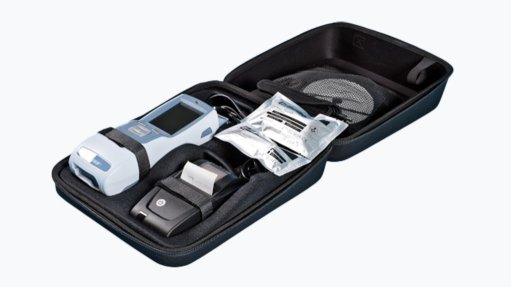A Liberalised Energy Market and the Path to Net Zero
Energy aggregators, such as NOA Group, are playing a crucial role in South Africa's evolving liberalised energy market, acting as a bridge between electricity producers and consumers and significantly boosting the procurement of renewable energy. This emergence is creating new opportunities for the industrial and commercial sectors, particularly mining, to achieve their net-zero ambitions through increased renewable energy generation. As a result, an energy revolution is underway, focusing on critical needs such as energy security, tariff stability, and decarbonisation.
Energy aggregators facilitate the seamless flow of renewable energy from producers to consumers, enhancing the efficiency and reliability of energy supply. By sourcing energy from multiple renewable projects, and aggregating demand from various businesses, these intermediaries can structure better terms and enable higher energy availability, passing the benefits on to industrial and commercial consumers.
This market evolution is crucial for the country’s energy future. It not only supports the decarbonisation goals of businesses but also contributes to national efforts to reduce greenhouse gas emissions. As more companies turn to renewable energy to power their operations, the cumulative impact on South Africa’s carbon footprint will be significant.
Energy aggregators are stimulating competition, driving innovation and investment in the renewable energy sector. This competitive landscape ensures that businesses have access to clean, reliable, and cost-effective energy solutions, fostering economic growth and sustainability.
“The provision of uninterrupted renewable energy empowers the industrial and commercial market, which drives the country’s economy, to not only realise their net-zero aspirations, thus contributing to the global effort against climate change, but also to unleash their commercial potential. This can catalyze investment, spur job creation, and elevate the standard of living for South Africans,” said Karel Cornelissen, CEO of NOA Group. NOA Group is one of the country’s most innovative and robust energy aggregators, capable of generating, wheeling, and selling clean electricity nationwide.
Understanding Wheeling, as a vital mechanism for the Aggregator Model.
Wheeling is the delivery of energy from a generator at one or multiple sites to an end-user in another area through existing distribution or transmission networks.
Aggregators buy power from IPPs based on contracted capacity and then distribute it to individual off-takers, including mining companies, industrial users, and municipalities, according to their needs. The model is independent of government procurement programmes and operates in the private energy market.
They use the existing transmission and distribution grid to ‘wheel’ power from generation points to consumption sites, paying a wheeling fee to the grid operator. Aggregators combine the demand of multiple consumers with varying energy consumption profiles into a diversified portfolio, enabling them to allocate energy between customers, as and when required.
Structural reform most recently signaled by the signing of the Electricity Regulation Amendment (ERA) Act by President Cyril Ramaphosa last month, is helping to pave the way for aggregation.
The Act introduces crucial reforms aimed at modernising the country's energy infrastructure, fostering competition, and ensuring long-term energy stability. By establishing a competitive electricity market and an independent transmission company, the National Transmission Company South Africa (NTCSA), the legislation seeks to attract further investments, and shift financial risks from the government to the private sector.
“With the liberalisation of the South African electricity market, energy trading is becoming increasingly important. Traders are essential to a more deregulated market. The NTCSA provides a platform for generators, consumers, traders, and retailers to trade with one another, similar to competitive electricity markets worldwide,” explained Cornelissen.
He added, “The NTSCA will ultimately bring about a competitive electricity market for the country, opening up access to the transmission network and enhancing efficiency and transparency. It is another step in the electricity market reform, in a move to increase efficiency. The shift towards to a more diversified market will be accelerated by the state utility’s unbundling, and energy aggregators will play a critical role in enabling this transition.” added Cornelissen.
Supporting the Mining Sector’s Decarbonisation Goals
In response to growing financial, legislative, and societal pressures to adopt environmentally friendly energy sources, mining and other industrial sectors are increasingly turning to energy aggregators for sustainable solutions. These sectors require not only a reliable energy supply but also a reduction in their carbon footprints to meet both regulatory standards and corporate sustainability goals.
A notable example is Tronox Holdings plc (NYSE), a leader in titanium dioxide pigment manufacturing, which announced a 497 GWh renewable energy supply agreement with NOA Group earlier this year. This transaction, underpinned by verified International Renewable Energy Certificates (IRECs), ensures the delivery of renewable energy and supports Tronox's ambitious decarbonisation objectives. These certificates play a crucial role in verifying that the energy consumed is sourced from renewable projects, providing transparency and credibility to their sustainability efforts.
"Decarbonisation is critical for mining and industrial companies targeting net-zero emissions. For Tronox, achieving this goal is largely facilitated by increasing the use of renewable energy. This latest agreement facilitates an annual offset of over 500 kilotons of carbon," said Cornelissen. This agreement has significantly increased Tronox's South African operations renewable energy penetration to over 70% of its electricity requirements, building on an initial renewable energy procurement in March 2022.
By doubling down on efforts to reduce operational costs and accelerate their decarbonisation goals, Tronox is aligning with the industry-wide move towards lower-carbon operations. This strategy not only helps them meet environmental regulations but also positions them as a leader in sustainability within their sector.
This agreement between NOA Group and Tronox represents a significant advancement in renewable energy supply solutions for commercial and industrial offtakers in South Africa. It is the largest private wheeling transaction between an aggregator like NOA and a private offtaker in South Africa, highlighting the scalability and effectiveness of this model. Unlike traditional bilateral agreements tied to specific generation sites, NOA’s aggregation and trading platform separates energy generation from consumption. This model ensures a more flexible, efficient, and reliable energy supply.
The ability to aggregate demand from various consumers and source energy from multiple large-scale generation sites, diversified in terms of geography and technology (wind, solar PV and battery systems) allows NOA to provide a consistent and dependable energy supply. This is particularly beneficial for energy-intensive industries like mining, where energy reliability is critical for operations. By leveraging aggregator platforms, companies can secure renewable energy without the logistical complexities and limitations of site-specific agreements, thus ensuring continuous and efficient energy use.
This innovative approach to energy aggregation not only supports the decarbonisation goals of the mining sector but also sets a precedent for other industries to follow. As more companies adopt similar strategies, the overall demand for renewable energy will increase, driving further investments in renewable projects and contributing to South Africa’s broader energy transition and sustainability goals.
Article Enquiry
Email Article
Save Article
Feedback
To advertise email advertising@creamermedia.co.za or click here
Announcements
What's On
Subscribe to improve your user experience...
Option 1 (equivalent of R125 a month):
Receive a weekly copy of Creamer Media's Engineering News & Mining Weekly magazine
(print copy for those in South Africa and e-magazine for those outside of South Africa)
Receive daily email newsletters
Access to full search results
Access archive of magazine back copies
Access to Projects in Progress
Access to ONE Research Report of your choice in PDF format
Option 2 (equivalent of R375 a month):
All benefits from Option 1
PLUS
Access to Creamer Media's Research Channel Africa for ALL Research Reports, in PDF format, on various industrial and mining sectors
including Electricity; Water; Energy Transition; Hydrogen; Roads, Rail and Ports; Coal; Gold; Platinum; Battery Metals; etc.
Already a subscriber?
Forgotten your password?
Receive weekly copy of Creamer Media's Engineering News & Mining Weekly magazine (print copy for those in South Africa and e-magazine for those outside of South Africa)
➕
Recieve daily email newsletters
➕
Access to full search results
➕
Access archive of magazine back copies
➕
Access to Projects in Progress
➕
Access to ONE Research Report of your choice in PDF format
RESEARCH CHANNEL AFRICA
R4500 (equivalent of R375 a month)
SUBSCRIBEAll benefits from Option 1
➕
Access to Creamer Media's Research Channel Africa for ALL Research Reports on various industrial and mining sectors, in PDF format, including on:
Electricity
➕
Water
➕
Energy Transition
➕
Hydrogen
➕
Roads, Rail and Ports
➕
Coal
➕
Gold
➕
Platinum
➕
Battery Metals
➕
etc.
Receive all benefits from Option 1 or Option 2 delivered to numerous people at your company
➕
Multiple User names and Passwords for simultaneous log-ins
➕
Intranet integration access to all in your organisation



















